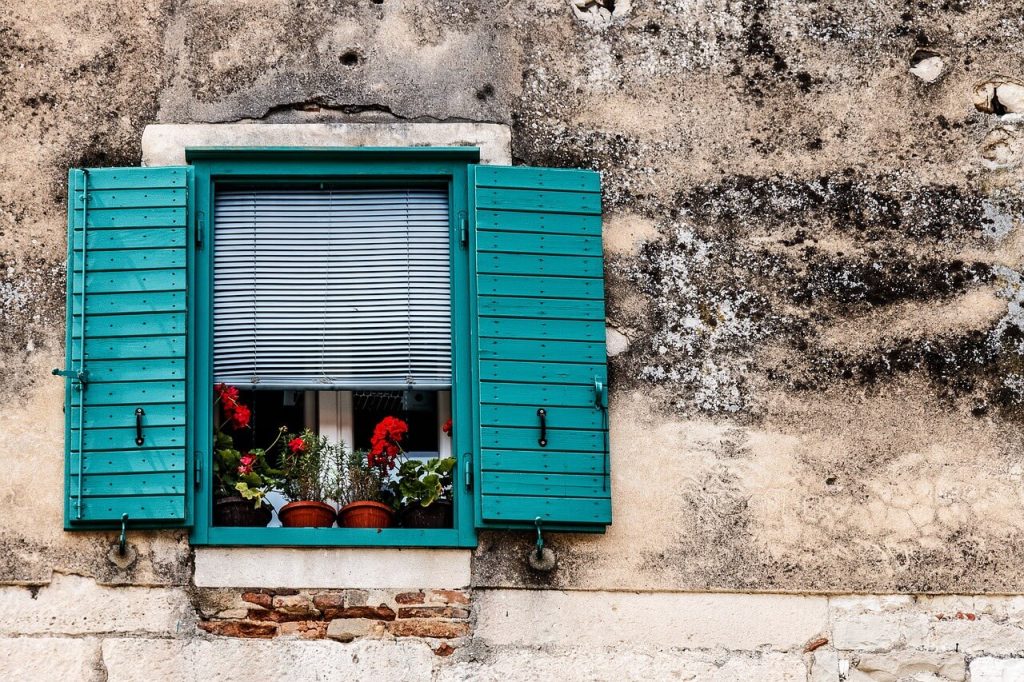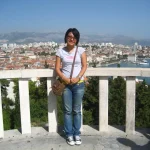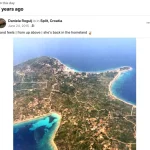I have been second-guessing myself for writing about the good and bad of living in Split. There are various online discussions on similar topics. The positive and negative comments from both local and foreign people living and/or leaving Croatia can be antagonistic. But the answers, whether they are good or bad things, are inevitably personal. So the antagonism surprises me even more than the answers themselves. This gets me to think about another irrelevant issue. Can I “complain” to and about my Croatian husband even though I do not want a divorce? I see sufficient goodness in him for us to be together. But he still annoys me on some good days and pisses me off on some really bad ones.
Back to the original question for this piece. I actually do not have better insights or more original ideas than are mentioned elsewhere. The diversity in this country can appeal to people with all sorts of preferences. All I can say is that life in Split suits me at this stage of my life: fewer people, slower pace, better climate, nicer environment, more freedom, less fear … These are what I call the background factors. We only know we want them when we had the opposite or even none of them. And there are things we have to deal with on a daily basis: money, food, health, work, socialising, parenting, elderly care … Daily frustration usually comes from these areas. Living in certain bubbles can avoid some of them while certain life stages can bypass the others. As we inevitably attach different weights to the background factors and give our own priority to the daily things, they affect our experiences in Croatia in myriads of ways.
My interactions with Croatia have changed in the last 10 years and so have my experiences of living here. I arrived at an age when it was difficult to find a new job or get a new friend even back home. But modern technologies kept old circles within easy reach. So I rarely found myself frustrated in those early days. Even my residency application was pretty straightforward. Having zero prior knowledge, I could not tell whether a processing time of 2-3 months was considered fast or slow. I hardly complained about MUP as my husband and I just went with their flow. They told me the most important thing I needed to know at that time: I could stay as long as the application was being processed. But we found out later that having the temporary residency approved earlier did make a difference: I had to go to the hospital without Croatian health insurance. We were busy mourning rather than crying over the hospital bill which was not big anyway.
My understanding of the Croatian health system expanded further when my prenatal visits began. That was also the time when the Croatian language bothered me time and again. But my gynecologist was trying his best to take care of me. And I learnt the most important Croatian words in that period: sve u redu. Again, I had had no previous experience in this area to compare with the one I had in Croatia. I was as contented as any woman who has a problem-free pregnancy. Labour, or I should say post-labour, was a bit bumpy and gave me a full-fledged experience of hospitalization in Croatia.
The journey actually started off really sweet as the taxi driver decided to give us a free ride to the hospital. Croatia surprises me many times and especially at a time when I least expect it. The Clinic for Women’s Diseases and Obstetrics in its present building was pretty new 9 years ago. My neighbour told me afterward that the facilities were much better than the old one where she had given birth. They were indeed. I did not expect to be put in a semi-private room in a public hospital. Knowing how medical professionals work in public hospitals in Hong Kong, I tried not to bother them unless it was absolutely necessary during my 2-week stay there. I could feel that the language barrier on top of their workload stressed them further. The doctors concluded, after some tests and scans, that bed rest with a tight wrap or girdle around my hips was all I needed. Total recovery indeed came after 3 more weeks of the remedy at home. My friend told me that it was likely to be postpartum pelvic girdle pain. In hindsight, I was kind of optimistic about having my only child here. If I had known about RODA then, I might have prepared better for my pregnancy in Croatia.
The emergency room and other clinics for specialty doctors in Split hospital remind me of the public hospitals in Hong Kong: I once spent half a day in the waiting room for an ophthalmologist to check my eye for less than 10 minutes. It was the same for all the other 3 appointments that followed. Would I like to wait for less time? Absolutely! Did I complain about it? Not really, as I knew how public hospitals worked. When I learn that Hong Kong people moving to the UK have to pay 55 Euro per adult per month for the National Health Service, I have a new appreciation for the Croatian public health system despite the imperfections.
Having a child in Croatia also gets me into the most controversial and stressful sphere in life: parenting. The natural environment and safe space kids can enjoy in Croatia are second to none. That is immensely helpful to parents who stay with their children 24 hours a day. Then comes the most welcomed daily breather for all stay-at-home parents: kindergarten. While Hong Kong parents and pre-schoolers stress and work hard to get ahead, the counterparts in Croatia relax and enjoy their carefree days. Is the Croatian way a good thing? For me it is. But like everything else related to parenting, the answer really depends on whom you ask.
Opinions only get more diversified when children begin schooling. I have listened to my friends, living in different cities, talking about the good and bad of public schools, private schools, international schools… you name it. Parents in Croatia are no exception, I guess. So the conclusion is pretty simple: no school is perfect for any parent. My parents probably thought that I was in the best available schools in our neighbourhood at that time. But none of them taught me how to live in Croatia (there was only Yugoslavia anyway). I am pretty certain that no schoolwork could have prepared us for what has been happening since the pandemic started. Did schooling help me at any stage of my life? Definitely, but little has to do with the textbooks I read or the tests/examinations I passed. The ways I treat schools as a parent are very similar to how I handle life in Croatia: take full advantage of the good bits to help my son develop and get by with the “bad” parts to satisfy the institution.
One thing I like the most about schooling in Croatia is that children do have spare time. Besides enjoying their own leisure, children can explore and pursue many different activities and sports without breaking their parents’ banks.
An article about the good and bad of living in Croatia cannot be complete without talking about the bureaucracy and paperwork. I have had my fair share of them after getting my residency and citizenship, buying and renovating an apartment, opening a Croatian company, and getting the required permits. In my experience, it always feels the worst in the preparatory stage. It is more about finishing one task after another once the process gets started. When I focus on the task(s) at hand without thinking too much about anything else, all the applications and procedures are hardly enjoyable but bearable.
I must also say that Croatia has come quite a long way in the last 10 years: more online services, better English websites, all kinds of English-speaking service providers, and numerous expatriate-local communities all over the country. Is it a good thing that Croatia is becoming more international and making life easier for foreigners? Everyone’s opinions are different. Coming from a once international city and finding my home here as a foreigner, I only have one obvious answer.
For more about lifestyle in Croatia, follow TCN’s dedicated page.












